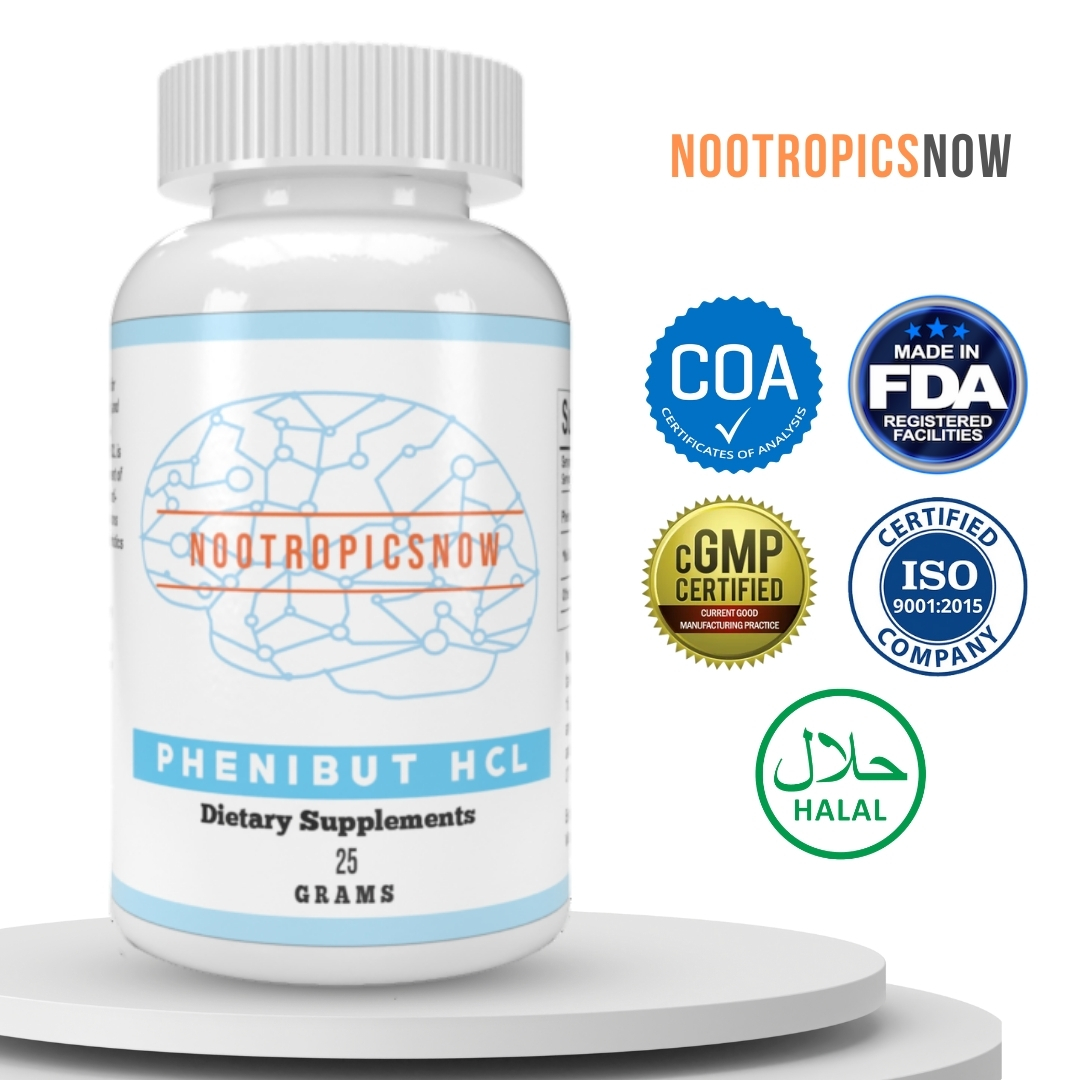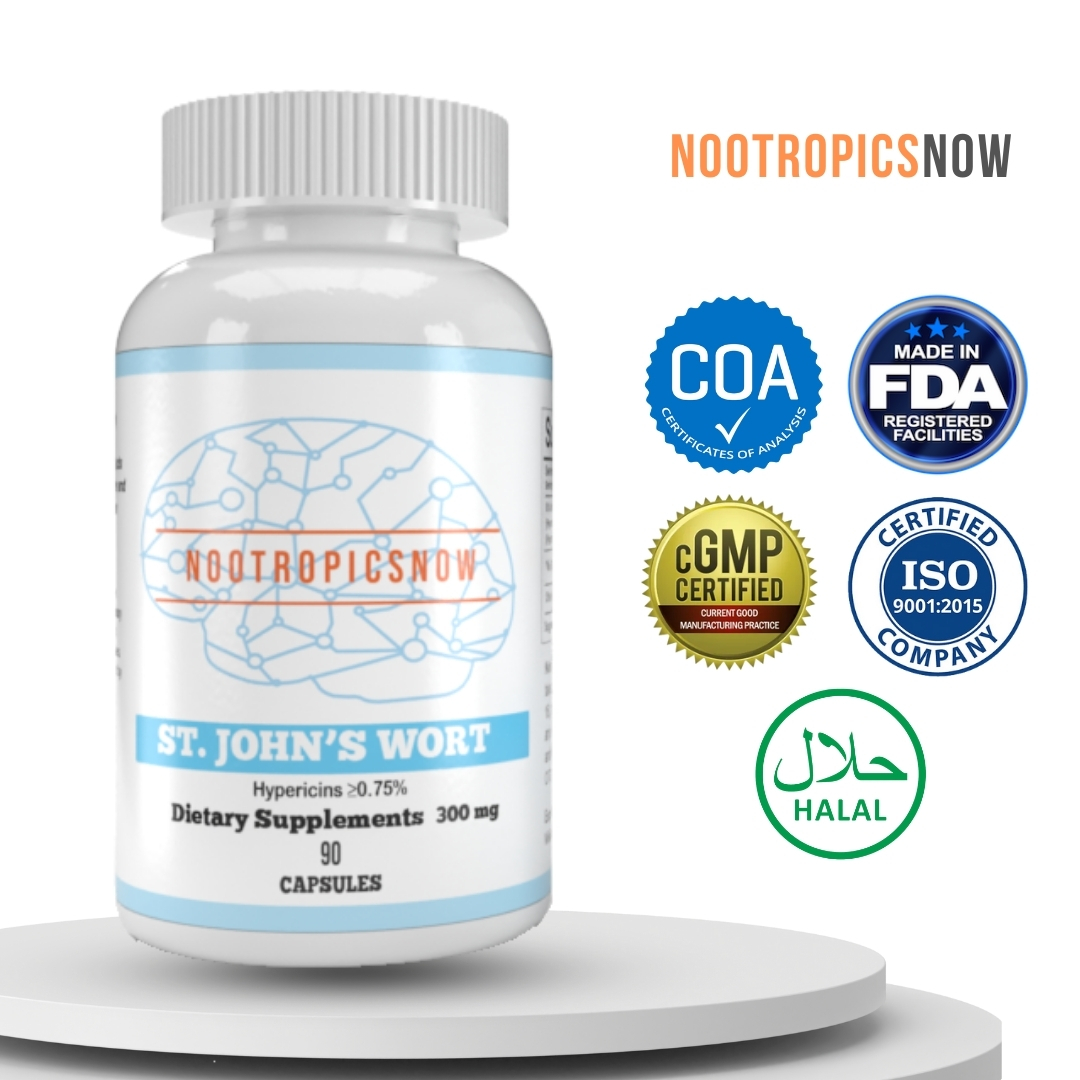Phenibut Effects: Benefits, Risks & Side Effects

Phenibut Effects: Understanding the Risks and Benefits
Phenibut, also known as β-phenyl-γ-aminobutyric acid, is a synthetic compound structurally similar to the neurotransmitter gamma-aminobutyric acid (GABA). It has garnered attention for its potential anxiolytic (anti-anxiety), nootropic (cognitive-enhancing), and sedative properties. Originally synthesized in Russia in the 1960s, it has found use in treating anxiety, insomnia, and post-traumatic stress disorder (PTSD) in certain countries. Nonetheless, the unregulated availability and potential for dependence and severe withdrawal symptoms have raised significant concerns about its safety. Therefore, understanding the various phenibut effects, both positive and negative, is crucial before considering its use.
The Positive Effects of Phenibut

Many users are drawn to phenibut because of its reported benefits, which can include reduced anxiety, improved sleep quality, and enhanced cognitive function. These effects contribute to its appeal as a self-prescribed remedy for various conditions. However, it is important to note that the experiences and effects can vary widely.
Anxiety Reduction
Phenibut’s primary appeal lies in its anxiolytic properties. By acting as a GABA-B receptor agonist, it reduces neuronal excitability, which leads to a calming and relaxing effect. This is why people often report feeling less anxious and more at ease when taking phenibut. It is thought that the GABA-B receptor is particularly sensitive to phenibut’s presence. Many users report a significant reduction in social anxiety. As a result, they can feel more confident and outgoing in social situations. Thus, these anxiolytic qualities can be beneficial for individuals dealing with generalized anxiety disorder or social phobia.
Improved Sleep Quality
The sedative effect of phenibut can also improve sleep quality. It helps individuals fall asleep faster and stay asleep longer. This effect is particularly beneficial for those struggling with insomnia or other sleep disorders. Moreover, the GABA-B agonism promotes a deeper, more restful sleep by decreasing overall brain activity. As a result, individuals may wake up feeling more refreshed and energized, rather than groggy and tired.
Cognitive Enhancement
Interestingly, some users report cognitive benefits from phenibut, such as improved focus, enhanced memory, and increased motivation. These effects are attributed to its action on dopamine receptors, in addition to its GABAergic activity. By modulating dopamine levels, phenibut can enhance cognitive function and overall mood. Moreover, some users find that phenibut helps them concentrate better on tasks, making it easier to stay productive. However, the cognitive enhancing effects are not consistent. They can vary greatly depending on the individual and the dosage.
If you are looking for a supplement to help improve focus, you may want to consider other nootropics.

View Product

View Product
Muscle Relaxation
Beyond mental effects, phenibut can also induce muscle relaxation. This is a potential benefit for those experiencing muscle tension or spasms. By reducing muscle tone, phenibut can provide relief from discomfort. It may assist in conditions like fibromyalgia or chronic back pain. Athletes also report using it to ease muscle soreness after intense workouts. Its ability to promote muscle relaxation is beneficial for improving sleep quality and reducing overall stress levels.
Mood Enhancement
Many people report improved mood and overall sense of well-being. This can lead to increased sociability and a more positive outlook on life. The modulation of both GABA and dopamine pathways contributes to this mood-enhancing effect, creating a feeling of euphoria for some. Moreover, it allows individuals to experience a general elevation in mood. This makes them feel more content and optimistic.
The Negative Effects of Phenibut
Despite the potential benefits, phenibut also carries significant risks. These are particularly related to its addictive potential, withdrawal symptoms, and other adverse effects. Understanding these risks is essential for making informed decisions about its use.
Addiction and Dependence
One of the most significant concerns with phenibut is its high potential for addiction and dependence. With regular use, the body adapts to its presence, requiring higher doses to achieve the same effects (tolerance). Then, the body will become dependent on it. Thus, abruptly stopping phenibut can lead to severe withdrawal symptoms. This is a telltale sign of physical dependence.
The rapid development of tolerance and dependence means that users may quickly find themselves needing increasingly larger doses to feel the desired effects. This escalation can lead to a cycle of abuse, making it difficult to discontinue use. Moreover, the psychological dependence can be just as strong. Individuals begin to rely on phenibut to cope with anxiety, insomnia, or other issues, reinforcing its use.
Withdrawal Symptoms
Phenibut withdrawal can be extremely unpleasant and even dangerous. Symptoms can include severe anxiety, insomnia, agitation, tremors, and even seizures. These symptoms often mimic those associated with benzodiazepine or alcohol withdrawal. As a result, they require careful management and medical supervision.
The intensity of withdrawal symptoms varies. It depends on the dosage and duration of use. However, even relatively low doses taken regularly can lead to significant withdrawal effects. The prolonged use of phenibut can cause protracted withdrawal symptoms that last for weeks or even months. These include persistent anxiety, depression, and cognitive difficulties.
Overdose
Phenibut overdose can result in serious health complications. Symptoms of overdose include sedation, respiratory depression, loss of coordination, and coma. In severe cases, overdose can be fatal. Therefore, it is crucial to adhere to recommended dosages and to be aware of the signs of overdose.
The risk of overdose is increased when phenibut is combined with other central nervous system depressants, such as alcohol, benzodiazepines, or opioids. These substances can potentiate the effects of phenibut, leading to a greater risk of respiratory depression and other adverse outcomes. Therefore, mixing phenibut with other drugs should be strictly avoided.
Other Adverse Effects
In addition to addiction, withdrawal, and overdose, phenibut can cause a range of other adverse effects. These include:
Long-Term Effects
The long-term effects of phenibut use are not well-studied. However, there is concern that chronic use may lead to persistent cognitive impairment, mood disorders, and other health problems. More research is needed to fully understand the long-term risks associated with phenibut.
Safe Usage Guidelines
Given the potential risks, it is essential to exercise caution when considering phenibut use. Here are some guidelines to help minimize the risk of adverse effects:
Consult a Healthcare Professional
Before starting phenibut, consult with a healthcare professional. They can assess whether it is appropriate for you based on your medical history, current medications, and individual circumstances.
Start with a Low Dose
Begin with the lowest effective dose, typically around 250-500 mg. This helps minimize the risk of side effects and allows you to assess your individual response to the drug.
Limit Frequency of Use
To reduce the risk of tolerance and dependence, limit phenibut use to no more than two times per week. Avoid using it on consecutive days. Taking breaks from phenibut can help prevent tolerance and dependency.
Avoid Combining with Other Substances
Do not combine phenibut with alcohol, benzodiazepines, opioids, or other central nervous system depressants. These substances can potentiate the effects of phenibut, increasing the risk of overdose and other adverse outcomes.
Monitor for Side Effects
Pay close attention to any side effects you experience while taking phenibut. If you develop any concerning symptoms, such as severe drowsiness, dizziness, or cognitive impairment, discontinue use and consult a healthcare professional.
Taper Gradually
If you have been using phenibut regularly and wish to discontinue use, taper your dose gradually under the supervision of a healthcare professional. Abruptly stopping phenibut can lead to severe withdrawal symptoms.
Be Aware of Legal Status
Phenibut is not regulated in many countries. Therefore, it is important to be aware of its legal status in your location before purchasing or using it. Ensure you are obtaining phenibut from a reputable source to minimize the risk of contamination or adulteration.
Alternatives to Phenibut
Given the risks associated with phenibut, it may be prudent to explore alternative treatments for anxiety, insomnia, and other conditions. Some options include:
Cognitive Behavioral Therapy (CBT)
CBT is a type of therapy that helps individuals identify and change negative thought patterns and behaviors. It has been shown to be effective for treating anxiety, insomnia, and other mental health conditions.
Selective Serotonin Reuptake Inhibitors (SSRIs)
SSRIs are a class of antidepressant medications commonly used to treat anxiety and depression. They work by increasing serotonin levels in the brain.
Benzodiazepines
Benzodiazepines are a class of medications that have an anti-anxiety effect. However, they also have the potential for dependence and abuse.
Melatonin
Melatonin is a hormone that regulates sleep. Melatonin can help with insomnia.
Herbal Remedies
Several herbal remedies, such as chamomile, lavender, and valerian root, are used to promote relaxation and improve sleep. However, more research is needed to confirm their efficacy and safety.
L-Theanine

View Product
L-Theanine is an amino acid found in green tea. It has calming and anxiolytic effects. You can combine L-Theanine with caffeine. This can improve alertness and focus without the jitters.
Magnesium
Magnesium is an essential mineral that plays a role in many bodily functions, including nerve and muscle function. Magnesium supplementation may help reduce anxiety and improve sleep.
The Future of Phenibut Research
More research is needed to fully understand the effects of phenibut on the brain and body. Future studies should focus on:
Conclusion
Phenibut presents a complex picture of potential benefits and significant risks. While it may offer relief from anxiety, insomnia, and other conditions, its high potential for addiction, severe withdrawal symptoms, and other adverse effects cannot be ignored. Approaching phenibut with caution, informed decision-making, and medical supervision is essential. If you are considering using phenibut, consult with a healthcare professional to discuss the risks and benefits and to determine whether it is appropriate for you. Exploring safer and more evidence-based alternatives for managing anxiety, insomnia, and other conditions may be a more prudent approach. The key is to prioritize your health and well-being and to make informed choices based on the best available scientific evidence.
Detailed Phenibut Effects: Risks, Benefits, and Considerations
Phenibut (β-phenyl-γ-aminobutyric acid) is a central nervous system depressant with anxiolytic and nootropic properties. Although initially synthesized in the Soviet Union in the 1960s, it has gained traction in Western countries as a purported cognitive enhancer, sleep aid, and social anxiety reliever. However, alongside its advertised benefits, phenibut carries substantial risks, including dependence, tolerance, and severe withdrawal symptoms. Understanding these multifaceted effects is crucial before considering its use.
Primary Effects and Mechanisms of Action
Phenibut’s effects stem from its ability to cross the blood-brain barrier and interact with the brain’s GABAergic system. Gamma-aminobutyric acid (GABA) is the primary inhibitory neurotransmitter in the central nervous system. By mimicking GABA, phenibut exerts several effects:
Positive Effects and Reported Benefits
Despite the inherent risks, some users report specific benefits when using phenibut responsibly and sparingly. These include:
Important Considerations Regarding Reported Benefits: These benefits are subjective and may not be experienced by everyone. The effectiveness of phenibut can vary widely depending on individual factors such as dosage, frequency of use, body weight, and individual sensitivity. Furthermore, the positive effects are often short-lived and diminish with repeated use due to tolerance development.
Negative Effects and Potential Risks
The potential risks associated with phenibut are significant and should not be underestimated. These risks include:
Dosage Guidelines and Safety Recommendations
Due to the risks associated with phenibut, it is crucial to follow strict dosage guidelines and safety recommendations. It’s highly advisable to avoid using phenibut entirely. However, if you choose to use it, the following recommendations can help minimize the risks:
Legal Status and Availability in the Philippines
The legal status of phenibut varies depending on the country. In the United States, phenibut is not a controlled substance, but it is not approved by the FDA for any medical use. In some European countries, phenibut is available as a prescription medication.
The legal status of phenibut in the Philippines is somewhat ambiguous. It is not explicitly listed as a prohibited substance, but it is also not a registered pharmaceutical product. This means that its sale and distribution may be subject to interpretation by local authorities.
Furthermore, since it’s not a registered drug, quality control is suspect. There are no guarantees of the purity or accuracy of the labeled dosage of any phenibut product available on the market.
Therefore, obtaining phenibut in the Philippines may involve ordering it from online vendors, which can carry risks related to product authenticity and legality. Before attempting to purchase or use phenibut in the Philippines, it is essential to research the current legal status and potential risks involved. Consulting with a legal professional is advisable.
If you still intend to explore this option, consider reputable sources:

View Product

View Product

View Product

View Product

View Product
Alternatives to Phenibut for Anxiety and Sleep
Given the risks associated with phenibut, exploring safer and more sustainable alternatives for managing anxiety and improving sleep is prudent. Several non-pharmacological and pharmacological options are available:

View Product

View Product

View Product

View Product

View Product
View Product-Nootropic-Brain-Support-Booster-Memory-Sleep-Supplement-i.202321183.5451568422)

View Product

View Product

View Product
Pharmacological Options: If non-pharmacological interventions are insufficient, consult a healthcare provider about appropriate pharmaceutical treatments like SSRIs or buspirone, which are commonly used for anxiety and have lower addiction potential. Remember, managing anxiety and sleep effectively should be a long-term strategy focusing on lifestyle changes and evidence-based treatments rather than relying on quick fixes like phenibut.

